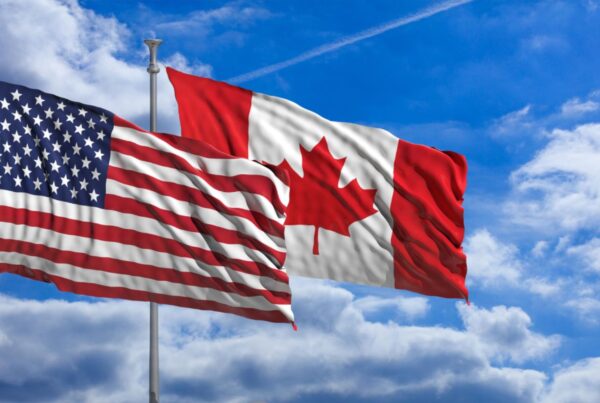Canada’s welcome initiative for Palestinian refugees from Gaza reveals a challenging reality for safety seekers. The country launched its temporary resident visa program for Gaza families on January 9, 2024, with promises to help 5,000 applicants. The program shut down unexpectedly on March 26 after hitting its application limit, which left many families uncertain about their future. Latest data from June 21 shows that only 1,200 visas have been granted, which points to major delays in processing.
Palestinian refugees face more than just application hurdles in Canada. More than 860 people have made it safely to Canadian soil, while thousands still wait to hear about their applications. Our experience as immigration experts in Vancouver shows that the Gaza Canada immigration process creates unique challenges for applicants. The Canadian Council for Refugees points out serious issues with temporary immigration measures and uneven responses to this humanitarian crisis. Security screenings and complex requirements create extra barriers for people seeking Palestinian immigration to Canada, even though the country has approved over 1,750 people from Gaza. The Canada Gaza visa program stands as a humanitarian effort, but questions about its effectiveness and reach need answers that we’ll discuss in this piece.
Canada launches emergency visa program for Gaza families
The federal government launched a special immigration program for Palestinian refugees in Canada on January 9, 2024. This program helped extended family members of Palestinian Canadians escape Gaza through a temporary resident visa valid for three years. The program started with 1,000 applications and later expanded to accept 5,000 TRV applications before closing to new applicants on March 6, 2025.
The program required applicants to have a passport or travel document from the Palestinian Authority while living in Gaza when they applied. Eligible relationships covered spouses, children of any age, parents, grandparents, grandchildren, and siblings of Canadian citizens or permanent residents. Canadian relatives had to support their family members for one year after arrival, which included help with housing, simple needs, and integration services.
The application process involved several steps. Applicants completed statutory declaration forms, submitted crisis web forms to get unique reference codes, and then submitted TRV applications. Approved Palestinian immigrants received three months of health coverage through the Interim Federal Health Program and became eligible for fee-exempt work or study permits. Government reports from October 2024 showed 4,245 applications accepted into processing, with 733 people approved and 334 people now living in Canada.
Delays in processing leave families in danger
Palestinian refugees who applied for Canada’s protection months ago remain stuck in dangerous situations because of substantial processing delays. Many families still haven’t received their unique reference codes to move forward with their temporary resident visa applications. These delays force their Gaza-based relatives to endure “life-threatening and inhumane conditions”.
Palestinian immigration to Canada faces its biggest problem with biometric requirements. People must submit their fingerprints and photos at an Immigration, Refugees and Citizenship Canada office, but Gaza has no such facility. Getting in and out of Gaza remains very difficult as multiple countries and organizations control the borders.
Toronto’s immigration lawyer Debbie Rachlis has worked with “at least five cases” where applicants died while waiting for visa approval. People who make it to Egypt often struggle without medical care or education access and depend on fundraising to survive.
The Gaza Canada immigration process moves much slower compared to the Canada-Ukraine program, which has approved nearly 963,000 applications with about 300,000 arrivals since March 2022. Applicants must go through unusual levels of scrutiny. They need to provide their employment history since age 16 and describe their body’s scars.
Families must pay hefty sums to escape – around CAD 6,967 for each child and up to CAD 13,934 for adults just to cross into Egypt.
Critics question fairness and transparency of the process
Human rights organizations have voiced major concerns about how Canada treats Palestinian refugees. The system seems to create unfair barriers through its systematic approach. The application process asks Palestinians to provide way more personal details than usual. They need to share information about bodily scars, their complete work history since age 16, every place they’ve lived, and their social media accounts. On top of that, they must let Egypt and Israel access their personal information.
Lawyers who handle immigration cases report some concerning questions from officials. One example stands out – officials asked if medical workers had “ever provided medical care to injured Hamas members”. This question goes against Geneva Convention principles that don’t allow care to be denied during conflicts.
Canada’s response shows a clear difference in how it handles various humanitarian crises. The country created a special visa pathway for Ukrainian refugees just a week after Russia invaded, and approved almost a million visas. A lawyer pointed out that “Canada has proven its knowing how to move fast, to scale up responses when it chooses to”.
The problems are systemic as families don’t get any explanation about why some applications get reference codes while others sit unanswered. More than 40 human rights organizations say these differences show built-in bias in the system.
How a Lawyer Helps
Legal representation is a vital part of Palestinian refugees’ journey to enter Canada through the emergency visa program. Immigration lawyers help applicants deal with complex documentation requirements. These requirements include sharing employment history since age 16, listing all social media accounts, and providing extensive personal details.
Refugee families are scattered in conflict zones and need lawyers to guide them. A Toronto immigration attorney called the process “impossible to put together for a client who is effectively homeless and running for their lives”.
The legal community has stepped up to help. Groups like Lawyers for Secure Immigration and the Family Reunification Project work to create more available pathways. On top of that, lawyers now coordinate group litigations against Immigration, Refugees and Citizenship Canada. These cases help families who face various obstacles – from missing application codes to unclear information about required documents.
Legal representation makes a real difference. Many applicants with legal support have started getting responses to their visa applications. Immigration lawyers help reduce delays by completing paperwork correctly, spotting potential issues early, and talking directly with authorities.
In spite of that, applicants should work only with authorized representatives. Canadian immigration law allows only certain professionals to charge fees, including lawyers who maintain good standing with provincial law societies.
Key Takeaways
Canada’s emergency visa program for Palestinian refugees reveals significant gaps between humanitarian intentions and implementation realities that affect thousands of families seeking safety.
• Canada’s Gaza visa program approved only 1,200 of 5,000 applications by June 2024, with extensive delays leaving families in dangerous conditions
• Palestinian applicants face unusually strict requirements including employment history since age 16 and biometric submissions impossible to complete in Gaza
• The program shows stark disparities compared to Ukraine response, which approved nearly 1 million visas within weeks of conflict
• Legal representation proves essential for navigating complex documentation requirements and addressing systemic processing delays
• Families often pay up to CAD 13,934 per adult just to reach Egypt while waiting for visa decisions, with some dying during the process
The program highlights how bureaucratic barriers can undermine humanitarian objectives, making legal advocacy crucial for refugee protection.
FAQs
Q1. What is Canada’s emergency visa program for Palestinian refugees? Canada launched a temporary resident visa program for Palestinian refugees from Gaza in January 2024, aiming to help up to 5,000 applicants. The program offers three-year visas to extended family members of Palestinian Canadians, including spouses, children, parents, grandparents, and siblings.
Q2. How long does it take for Palestinian refugees to arrive in Canada through this program? The processing time varies significantly. While some refugees have arrived safely in Canada, many others face extensive delays. As of June 2024, fewer than 1,200 visas had been granted out of the 5,000 applications accepted. The process can take several months, with some families still waiting for decisions.
Q3. What are the main challenges for Palestinian refugees applying to this program? Key challenges include strict documentation requirements, such as providing employment history since age 16 and social media account details. Applicants must also submit biometrics, which is impossible to do in Gaza. Additionally, the high cost of leaving Gaza (up to CAD 13,934 per adult) and reaching Egypt poses a significant barrier for many families.
Q4. How does Canada’s response to Palestinian refugees compare to other humanitarian crises? Canada’s response to Palestinian refugees has been notably slower compared to other crises. For instance, in response to the Ukraine crisis, Canada approved nearly 963,000 applications within weeks. The Palestinian program, in contrast, has faced significant delays and stricter requirements, leading to criticism about fairness and transparency.
Q5. How can legal representation help Palestinian refugees applying to this program? Immigration lawyers play a crucial role in navigating the complex application process. They assist with meeting demanding documentation requirements, address potential issues in applications, communicate directly with authorities, and advocate for applicants facing roadblocks. Legal representation has proven effective in minimizing delays and increasing the chances of successful applications.








